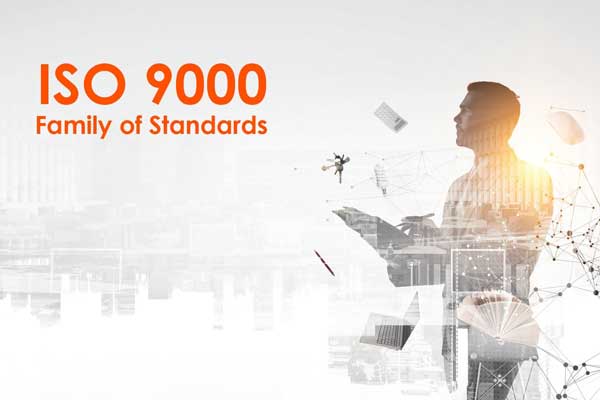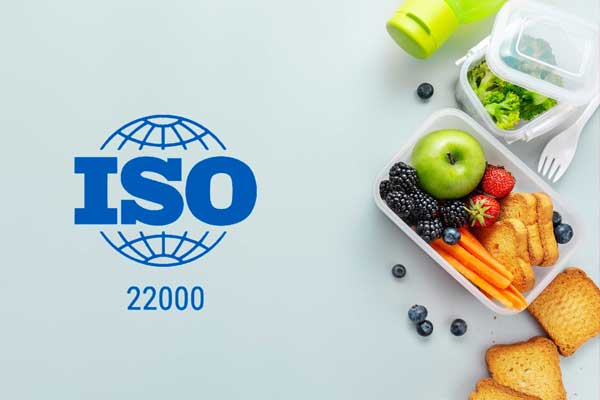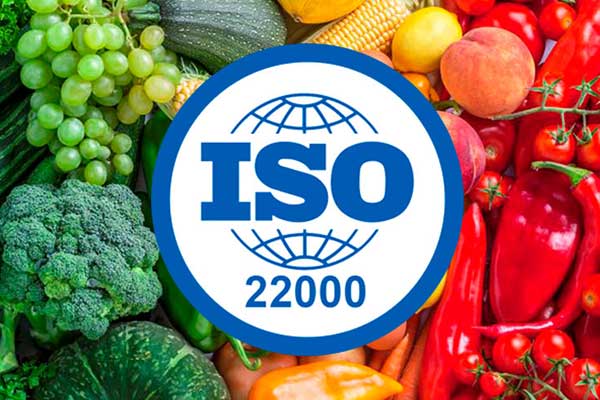People confuse between ISO 9000 and ISO 22000 because they deal with quality management. However, these standards differ in focus, usage and application. Let us discuss how these standards are separate entities by discussing the difference between ISO 9000 and ISO 22000.
ISO 9000 series
The ISO 9000 family of quality management standards were designed to help organisations meet the needs of their stakeholders and customers while simultaneously meeting all statutory and regulatory requirements related to their products or services. Essentially, ISO 9000 deals with the fundamentals of the Quality Management System (QMS), including the seven management principles upon which the family is based. Out of the entire family, ISO 9001 lists the recommendations for organisations that wish to meet the standards and implement their own QMS.

ISO 9000 standard
In the ISO 9000 series, the ISO 9000 standard is a separate standard unto itself. To put it simply, ISO 9000 is a principle-based international standard that describes how QMS can be utilised more effectively to improve customer satisfaction.
ISO 9000 versus ISO 9001
ISO 9000 is an essential tool, helping users familiarise themselves with the concepts, terminology and vocabulary utilised in ISO 9001. ISO 9000 and ISO 9001 standards are founded on seven quality management principles that help the organisation remain motivated towards a strong customer focus. These principles include:
- Customer focus, where the organisation’s prime focus should be meeting customer requirements and striving to exceed customer expectations.
- Leadership, where the organisation’s leaders must establish unity of purpose and direction at all levels.
- Engagement of people, where obtaining and maintaining competent, empowered and engaged people throughout the organisation helps enhance its capability to create and deliver value.
- Process approach, where the aim is to deliver consistent and predictable results through effective and efficient activities.
- Improvement, where the aim is to maintain an ongoing organisation-wide focus on continual improvement.
- Evidence-based decision-making, where data and information are evaluated to take all the decisions regarding the desired results.
- Relationship management, where managing the organisation’s relationship with parties is critical for sustained success.
What is ISO 22000?
ISO 22000 is a Food Safety Management System (FSMS) that can be applied to any organisation in the food chain. Becoming certified to the standard allows the company to show their customers that they take food safety seriously. The standard has requirements for the FSMS processes and procedures and requires organisations to implement prerequisite programs and Hazard Analysis Critical Control Points (HACCP). The goal of the standard is to control and reduce, to an acceptable level, any safety hazards identified for the end products delivered to the next step of the food chain.

Difference between ISO 9000 and ISO 22000
The main difference between the two standards is that ISO 9000 is described as a set of standards that brings together internationally recognised quality management principles and quality assurance standards to the international market, which fosters the production of goods and services that constantly meet global quality standards. In contrast, ISO 22000 is recognised as an international standard that combines the principles of HACCP and the recommendations of ISO 9001 to create a food safety management system for organisations that deal with food products. Hence, the applicability of both standards is different where ISO 9000 can be used as a reference guide by any organisation, and ISO 22000 only pertains to organisations in the food business.
ISO internal audit process
Irrespective of whether you implement ISO 9001 or ISO 22000, you will need to conduct ISO internal audit process to gauge your management system’s efficiency. The internal audit process begins with planning, ensuring that every process owner knows the audit schedule through notification. Prepare for the audit by reviewing the documents and developing an audit plan, assigning work to auditors and determining the audit sequence. During the opening meeting, review the documents and communicate the purpose of the audit. Carry out the audit and ask the necessary questions to gather the evidence, generate the audit findings and prepare the audit inclusions. Formally distribute the findings through an audit report in the closing meeting.
ISO 9001 consultants
Internal audits are critical because they help you measure the efficiency of your management system and are a requirement for achieving compliance. ISO 9001 consultants help you conduct internal audits to monitor, improve and troubleshoot your QMS to achieve your certification on the first attempt.
How much does ISO certification cost?
The cost of the ISO certificate is variable and depends upon factors such as the number of employees in your organisation, the number of processes, the number of outlets, and its scope. You can expect the certification cost to be around 15,000 USD per annum for organisations with a single output and less than 1000 employees.
Also read: “how to maintain iso 9001 certification”
Conclusion
ISO 9000 and ISO 22000 differ in their focus, where ISO 9000 focuses on all organisations, and ISO 22000 is specific to those that deal with food products or items. To learn more about ISO 9001 accreditation Australia you can contact us.








Users Comments
Get a
Quote